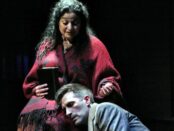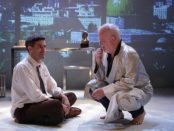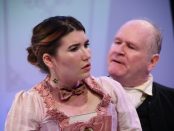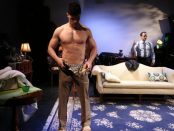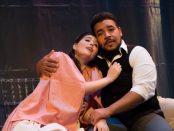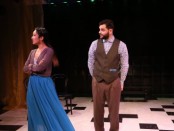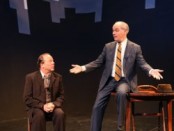Crime and Punishment
Tyson’s portrayal of Raskolnikov is riveting as he moves through the elements leading inexorably to his mental collapse. The exchanges with Porfiry are woven together with encounters with the people in his life that had an impact on his present mental state. Each of these ancillary scenes are used to fill gaps in the storyline needed to clarify Raskolnikov’s mental state and the exchanges that take place with the inspector. Lenartz gives a first-rate performance not only of Porfiry, but of all the characters he inhabits. He transforms into each of these characters with small changes in costume and with his movement and speech. He makes each of the ancillary characters distinct. This same skill is evident in Stone’s portrayal of all the women in the story, with small changes in costume and physicality she becomes a new character. The only quibble I have is with her portrayal of the character Sonia. The age of the character is important in the story, and although Stone does not fit the part, it does not diminish the impact of the performance. [more]

